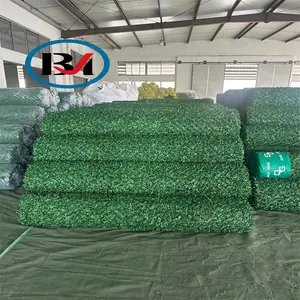Understanding Boundaries Self
Establishing personal boundaries is crucial for maintaining healthy relationships and ensuring self-respect. The practice of defining "boundaries self" involves recognizing and communicating your limits in various aspects of your life, including emotional, physical, and mental domains. This process is essential for fostering personal well-being and creating space for growth, ensuring that you respect both your needs and the needs of others.
Types of Boundaries Self
Boundaries can take various forms depending on individual circumstances. Here are the primary types of boundaries self:
- Emotional Boundaries: These safeguard your feelings and stabilize your emotional health. They involve the ability to separate your emotions from those of others, allowing for autonomous feelings and experiences.
- Physical Boundaries: These are about personal space and physical touch. Recognizing your limits in terms of personal interaction is vital for comfort and security.
- Material Boundaries: These deal with possessions and finances, defining how much you are willing to share with others and distinguishing between what you own and what you lend.
- Time Boundaries: Learning to prioritize your time and saying 'no' when necessary is a pivotal aspect of time boundaries. These allow you to manage your commitments and reduce stress.
Applications of Boundaries Self
Implementing solid boundaries self can have profound benefits across various aspects of life:
- Enhancing Self-Esteem: Establishing your limits strengthens self-worth by communicating to yourself and others that your needs are valid.
- Reducing Anxiety: Clear boundaries can significantly lower feelings of anxiety and overwhelm, as they create a safe environment in which you can express yourself.
- Improving Relationships: Boundaries lead to healthier interactions by facilitating open communication about personal limits, reducing misunderstandings and conflicts.
- Promoting Personal Growth: By asserting your boundaries, you open opportunities for personal development, encouraging positive change and self-discovery.
Features and Advantages of Healthy Boundaries Self
Understanding and implementing boundaries will yield significant advantages, transforming personal and interpersonal experiences. Here are some notable features and benefits:
- Increased Respect: Healthy boundaries generate mutual respect in any relationship, allowing individuals to exists as equals.
- Improved Communication: Clear boundaries encourage more transparent dialogues about needs and expectations, reducing the likelihood of miscommunication.
- Greater Emotional Resilience: Establishing boundaries fortifies your emotional health, helping you manage stress and emotional responses more effectively.
- Empowerment: Setting and upholding boundaries empowers you to take charge of your life, aligning your actions with your values and priorities.






















































